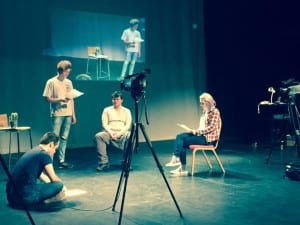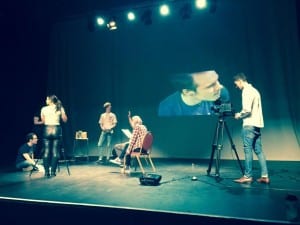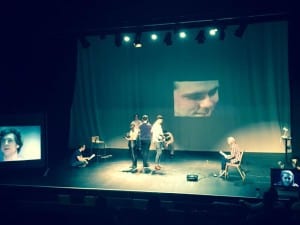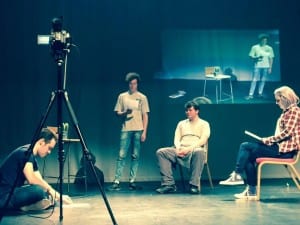Whilst reading an article online relating to thought and action certain aspects stood out to me as interesting. The article was on action for happiness, a community of people aiming to bring more happiness into the world, and it emphasised the significance of action, thought and consequence. Focusing on the different ways in which people’s initial thoughts to an event can provoke an emotional reaction, not the event itself. For example if you were to feel unhappy over a bad grade, it’s not receiving the grade that makes you unhappy but rather the immediate thought process following the event. However it goes on to talks about our emotional reactions sometimes being too fast and our thoughts become unclear. This strikes as interesting as gives us insight into the different ways people respond to events, because their immediate thought response is different. Here is some of the article:
Dr Albert Ellis, one of the founders of cognitive behavioural therapy, developed what is often called the A-B-C model, which is a useful way of separating things out. A is the Activating Event, or thing that happened; B is the Belief, or the thoughts that immediately run through our head; and C stands for Consequences – the emotions we feel and how we react as a result.
What Dr Ellis found was that the way people interpreted life events, and the things they said to themselves (B) had a huge bearing on how they felt emotionally and how they behaved (C).
The examples below show how different thoughts about the same event can impact on our feelings and behaviour. Do you think more like Tim, Laura, Mel or Dave?
Example 1 Activating event
You are working hard for a looming deadline. Your boss asks you for the second time that week how the report is going and reminds you that she would like to read it before it goes to the clients.
Tim
Belief – “She thinks I am useless and not capable of doing this on my own. She thinks I am being really slow and should have finished this by now.”
Consequences – Feels stressed, worried and sad. Cannot concentrate on the report and end up making unnecessary errors. Do not sleep well that night.
Mel
Belief – “Phew! This is an important project and I am glad that she keeps checking in and will read this through before it is sent off.”
Consequences: – Feel reassured and supported. Carry on working on the report, check it through before sending to the boss for review
Example 2 Activating event
You have had a bad day. On your way home you see a friend you haven’t seen in a few weeks across the street. You look up and wave and he seems to just ignore you.
Laura
Belief – “Why would he have just ignored me? I must have done something to upset me. Or maybe he just doesn’t like me that much.”
Consequences – Feel sad and quite down. Make no plans for that evening. Friends. Avoid seeing or calling him for a while. Don’t call any other friends
Dave
Belief – He seemed really distracted and looked a bit out of sorts. I hope he is ok.
Consequences – Feel fine – a bit concerned. Call him when you get home to check he is ok.
Interesting examples of how our immediate thought process influences the actions we take, and how reflection and a clear head can keep you from feeling negative even in bad situations.




